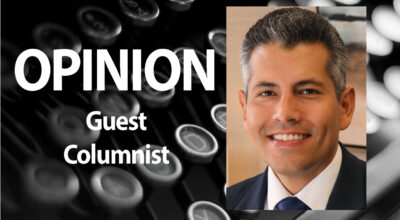Aggies to the Rescue?
Published 11:37 am Wednesday, November 16, 2016
Commentary by Dr. Don Newbury
There’s never been a justifiable basis for Aggie jokes–then or now. Most Texas A&M University students and former students have always known such jokes are that, and nothing more. And a majority of the rest of us agree.
In truth, Texas A&M is, was–and no doubt always will be–one of the nation’s most distinguished institutions. Its growth and many successes are evident, and recent years have marked additions of many programs, including both law and dental schools.
And amounts of monies to fund research projects are mind-boggling. One recently announced initiative seems critical if Americans can afford to continue their love affair with the beverage that kick-starts their mornings. Texas A&M researchers face a serious challenge.
Not until learning about coffee leaf rust did I realize coffee shortages seem unavoidable, what with climate changes that are responsible for devastating coffee crops in Central America and Brazil.
Adding to the sense of urgency is the 2015 study predicting that 50% of the land used to grow Arabica coffee will be unsuitable for use beyond 2050.
With Americans’ taste growing for multiple coffee flavors, we are prone to expect robust coffee crops without interruption. The masses of us are counting on the Aggie researchers to solve the looming problem. If they don’t come through, “bottomless coffee cups” featured at some restaurants may go the way of the wild goose.
Hopefully, researchers are hanging “do not disturb” signs at the work place. This is serious business. We are, in fact, “hooked” on coffee, and that’s no joke.
Of more concern should be recently announced findings of the Surgeon General. (My 104-year-old Uncle Mort says he remembers the Surgeon “Lieutenant.”)
It reveals several additional health problems heaped on findings of the 1964 report that tied cigarette smoking to lung cancer. It is now believed that smoking can cause diabetes, rheumatoid arthritis and immune system weakness. Add to these fears the likelihood that second-hand smoke can cause strokes for non-smokers.
Since initial findings in 1964, cigarette smoking among adults has declined from 42% to 18%. More than 20 million Americans have died because of smoking.
The 1964 report significantly limited cigarette advertising. It also mandated health warnings for packaging.
Remembrances of earlier ads flashed to mind during a recent cruise. On Freedom, a Carnival Cruise Line vessel, I opted to disembark when we reached Cozumel.
In the first shop, I noticed a large display of cigarettes. A huge sign–with headline-size type–proclaimed: “SMOKING KILLS.”
Perhaps the shop owner took seriously governmental laws introduced there in 2010.
Warnings and images must be changed every six months. So far, images have included a dead rat, a partial mastectomy and a laryngectomy with backdrops of cigarette butts.
In Mexico, it is required for sellers to identify smoking-related diseases and statistics, toxins found in cigarettes and other stark claims, including warnings such as: Your baby can die. You will have a slow and painful death. You are hurting your family. Smoking damages your arteries. Another challenges, “Go ahead; shorten your life.” It occurred to me that the SMOKING KILLS banner so prominently displayed the day I visited was no starker than others mandated in Mexico, and the warnings are more stringent than in the USA.
Movie scenes showing stars smoking have lessened, and there are no more billboards featuring smokers puffing real smoke skyward. Gone also are other performers specializing in creatively exhaling smoke rings.
References to smoking in song also are relegated to memories. We of a certain age can remember the late Phil Harris rendition about cigarettes. The chorus instructs, “Tell St. Peter at the golden gate that I hate to make him wait, but I just gotta have another cigarette.”
In today’s world, I’ll settle for another cup of coffee. Black. And remember my Uncle Mort’s contention: “It don’t take much water to make good coffee.” Please pardon his grammar
Dr. Newbury is a speaker in the Dallas/Fort Worth Metroplex. Inquiries/comments to: newbury@speakerdoc.com. Phone: 817-447-3872. Web site: www.speakerdoc.com.





